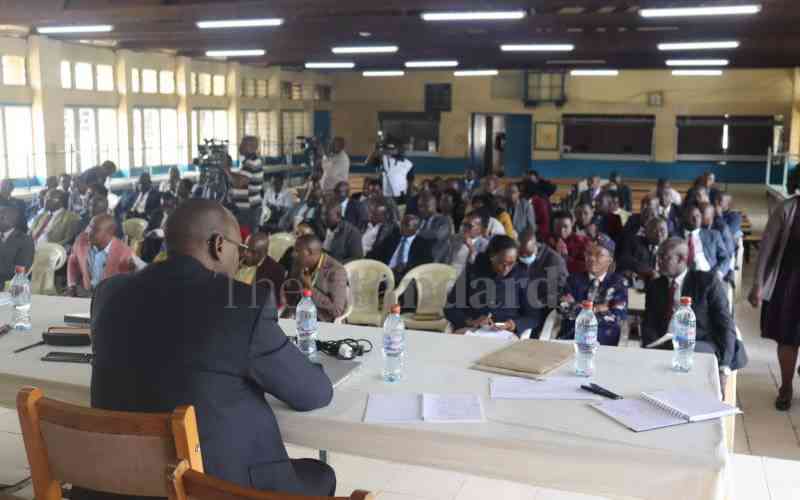
Grade Six learners may remain in their present primary schools for two years.
This proposal could ease transition challenges for the government and also address parents' concerns about the age of learners.
The Standard has established that the Presidential Working Party on Education Reforms is mulling over a proposal that may alter the present structure of 2-6-3-3-3 which is implementing Competency Based Curriculum (CBC) to a new one of 2-6-2-4-3.
Facts First
Unlock bold, fearless reporting, exclusive stories, investigations, and in-depth analysis with The Standard INSiDER subscription.
Already have an account? Login
 The Standard Group Plc is a multi-media organization with investments in media
platforms spanning newspaper print
operations, television, radio broadcasting, digital and online services. The
Standard Group is recognized as a
leading multi-media house in Kenya with a key influence in matters of national
and international interest.
The Standard Group Plc is a multi-media organization with investments in media
platforms spanning newspaper print
operations, television, radio broadcasting, digital and online services. The
Standard Group is recognized as a
leading multi-media house in Kenya with a key influence in matters of national
and international interest.


